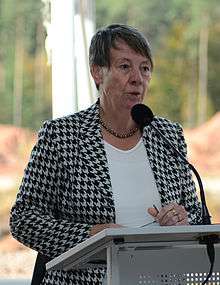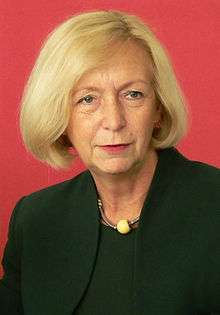Third Merkel cabinet
| Third Angela Merkel Cabinet | |
|---|---|
|
cabinet of Germany | |
| Incumbent | |
_cropped.jpg) | |
| Date formed | 17 December 2013[1] |
| People and organisations | |
| Head of government | Angela Merkel |
| Head of state | Joachim Gauck |
| Member party |
Christian Democratic Union Social Democratic Party of Germany Christian Social Union of Bavaria |
| Status in legislature | Grand coalition |
| Opposition party |
The Left The Greens |
| History | |
| Election(s) | German federal election, 2013 |
| Legislature term(s) | 18th legislature of the Bundestag |
| Predecessor | Merkel II |
The incumbent government of Germany, the third cabinet of Federal Chancellor Angela Merkel, was sworn in on 17 December 2013. Led by Merkel, the government is supported by a coalition of the Christian Democratic Union (CDU), the Christian Social Union of Bavaria (CSU), and the Social Democrats (SPD).
The CDU received five ministries in addition to the positions of Chancellor and Chancellery Chief of Staff/Minister for Special Affairs. The SPD controls six ministries and the CSU three. Although the CSU received a disproportionate share of ministries relative to its weight in the Bundestag, the six most powerful ministries were divided equally between the CDU and the SPD: the CDU controls the ministries for finance, internal affairs, and defense, while the SPD controls the ministries for foreign affairs, economics and energy, and justice and consumer protection.[2]
.jpg)
Composition
The current federal cabinet is composed of the following ministers and their parliamentary state secretaries[3](deputy ministers):
References
- ↑ "Bundeskanzlerin und Bundeskabinett vereidigt" [Federal Chancellor and cabinet sworn in] (in German). Deutscher Bundestag. Retrieved 16 June 2014.
- ↑ Stephan Wallace (April 29, 2014), Commentary: Merkel’s Third Government – Return of the Grand Coalition American Institute for Contemporary German Studies (AICGS) Washington, D.C.
- ↑ de:Kabinett Merkel III
- ↑ German Chancellery (20 February 2014). "Liste der Bundesministerinnen und Bundesminister" [List of Federal Ministers]. Protokoll Inland der Bundesregierung Artikel 08.01.2014 (in German). German Federal Ministry of the Interior.
Mit Schreiben vom 20. Februar 2014 hat das Bundeskanzleramt die amtliche Reihenfolge der Bundesministerinnen und Bundesminister bekannt gegeben.
- "Kabinettsliste: Das sind Merkels wichtigste Minister" [Cabinet list: These are Merkels most important ministers]. Spiegel (in German). Retrieved 15 December 2013.
- "Live-Blog zur Großen Koalition: Parteivorstand billigt die Kandidatenliste der SPD" [Live blog on the grand coalition: Party executive approves the SPD list of candidates]. Zeit (in German). Retrieved 15 December 2013.
- "Die "Welt" erfährt einige überraschende Personalien" [Die Welt learns some surprising personal details]. Welt (in German). Retrieved 15 December 2013.
External links
- Cabinet of Germany (English)
- Federal Ministries of Germany (English)
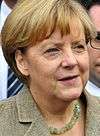

.jpg)

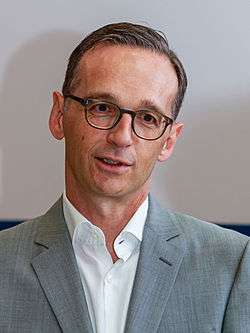
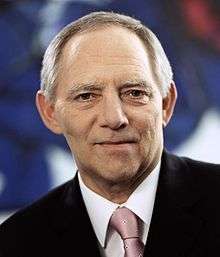
_110_(cropped).jpg)

_2011.jpg)
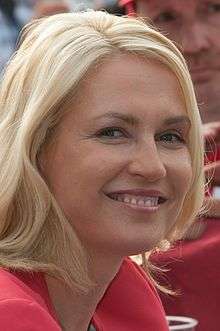
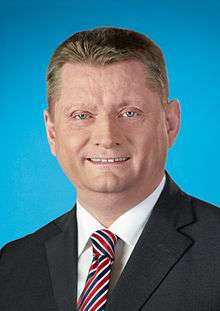
_104.jpg)
